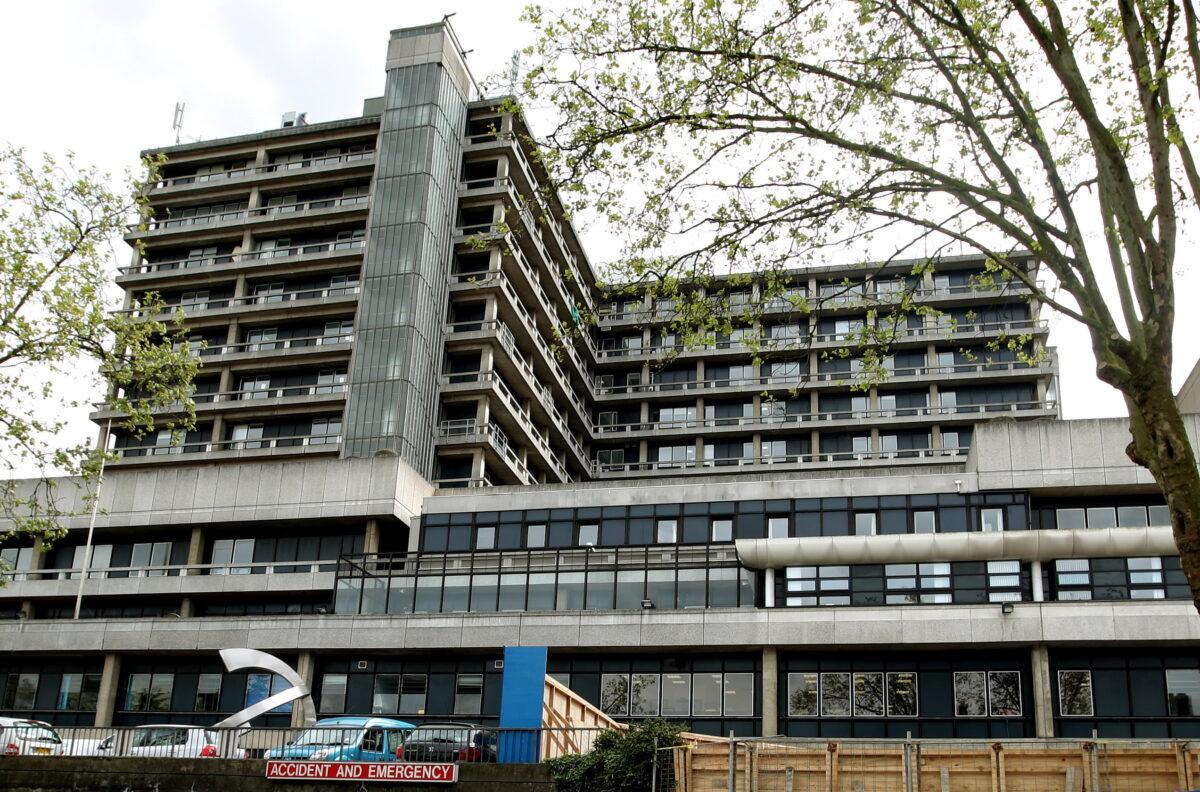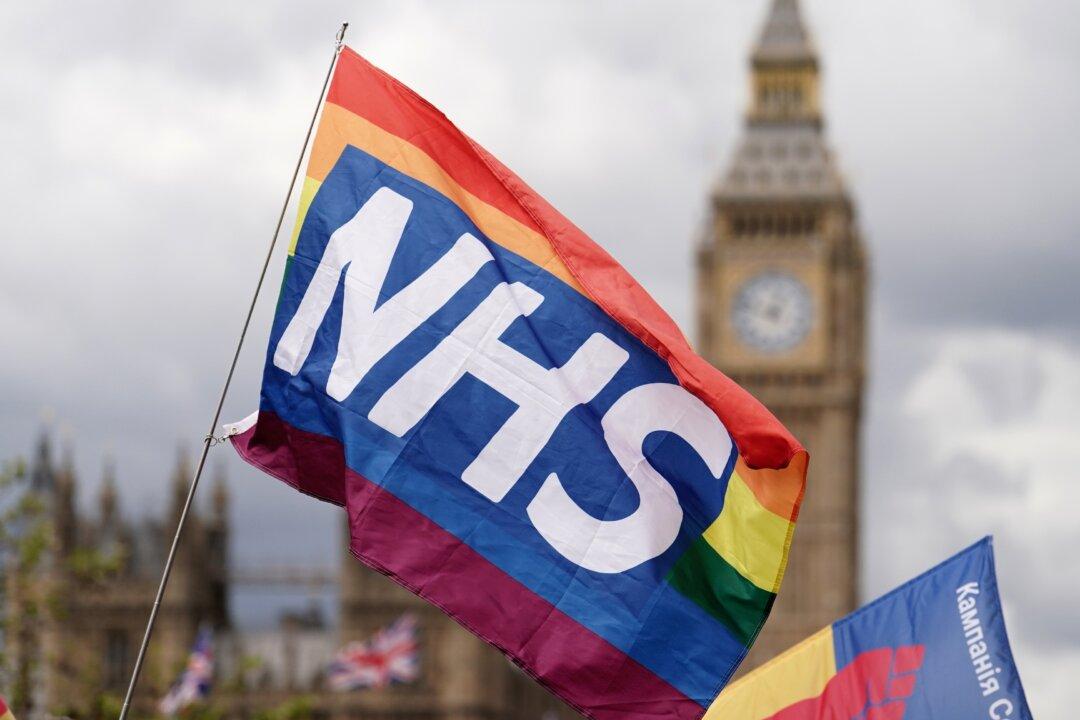Large NHS trusts have increased diversity spending in the past five years, but there is significant disparity on how this improves patient outcomes, according to Freedom of Information (FOI) data.
While the NHS has ample evidence of its commitment to equal opportunities in areas such as race, inclusive culture, and gender pay gaps, there remains a lack of evidence demonstrating the impact of the substantial taxpayer funds allocated to diversity, equality, and inclusion (DEI) roles on patient outcomes.
The Epoch Times submitted FOI requests to some of the UK’s biggest NHS trusts asking for information on DEI spending on staff and policies and what evidence there is to show it has led to improved patient outcomes.
Guy’s and St. Thomas’ NHS Foundation Trust said that its Equality Diversity and Inclusion Team’s salaries total around £450,000 a year, but it said that currently the trust does not “have mapped evidence” of the total.
It said that last December it commenced an Equality Diversity and Inclusion Programme of Improvement, which it said “will map and evidence the impact of Equality Diversity and Inclusion workstreams.”
Chelsea and Westminster Hospital NHS Foundation Trust did not give an entire amount but said that it spent between £63,541 and £55,049 per DEI role depending which areas of London staff work at.
It did not answer how this amount helped patient outcomes, but pointed to general reports from the NHS Confederation and The King’s Fund.
Manchester University NHS Foundation Trust, which is the largest in the UK and employs over 20,000 staff, said that it employed eight DEI staff, three of whom were on high pay NHS bracket bands, which are between £50,056 to £58,972.
This trust listed all the evidence it had, saying that at its children’s hospital, “some meals and snacks were offered every day to resident parents at four of the ten trusts.”
It added that “parent kitchen and facilities (microwave, toaster, fridge, kettle) were open” at its sites. Other DEI patient outcomes included offering “breastfeeding canteen vouchers for parents.”
It added that its parent and carers’ survey feedback was “very positive.”

The Royal Free London NHS Foundation Trust said it had increased its DEI staff spending from £19,000 in 2019 to £156,000 in 2022–2023. It consists of three hospitals with 11,000 staff, across three boroughs serving a million patients a year.
The report claims it will then have “evidence to demonstrate how we have engaged and involved staff, patients and carers” and how it has “improved patient experience and health outcomes for all nine protected characteristics.”
King’s College Hospital NHS Foundation Trust said that its annual DEI staffing budget is £558,429. When asked if this specifically improved patient outcomes, King’s College Hospital said that the “investment in our [DEI] team has led to a number of improvements.”
Part of its evidence relied on a 2014 study that said having an effective DEI team can “help ensure King’s is managing staff with respect and compassion, which correlates with improved patient satisfaction, infection and mortality rates.” It added that the “cost of bullying and harassment of staff alone has been conservatively estimated as costing the NHS £2.3 billion per year.” It noted a 2010 study that said that “health inequalities cost the NHS around £5.5 billion per year and broader economic costs of £31 to 33 billion.”
Leeds Teaching Hospitals NHS Trust said that the question on DEI funding was “too vague,” but that it had one DEI manager who could be on up to £50,000.
Equality Act
Brought in under the former Labour Party Prime Minister Gordon Brown, the Equality Act came into force in 2010, with the purpose to protect individuals from discrimination and promote a fairer and more equal society.This means that the NHS employs small teams of DEI experts on substantial wages who are responsible for implementing policy and setting tone. There are many roles, with job titles such as diversity inclusion lead, lived experience coordinator, and chief diversity and inclusion officer.

Badenoch: ‘Ineffective and Counterproductive’
A new government report commissioned by Business Secretary Kemi Badenoch, released on Wednesday, warned that workplaces are implementing DEI initiatives without an “evidence base.”It said that “despite strong evidence to suggest particular interventions are not effective and sometimes counterproductive, many employers continue to use them. For instance, there has been a proliferation of diversity training in recent years. This is despite much evidence showing ineffectiveness.”
Making the “social justice case” for DEI, the UK professional body for HR professionals, the CIPD, states that this “is based on the belief that everyone should have a right to equal access to employment, training and development based solely on merit.”
But commenting on the new report, Ms. Badenoch said that diversity and inclusion initiatives have been shown to be “ineffective and counterproductive.”
The independent Inclusion at Work Panel, appointed by Ms. Badenoch, set out how employers can move beyond “ineffective diversity and inclusion practices.”
Its found that 6,000 public authorities cite the existence of around 10,000 public DEI jobs at a cost of £557 million a year to the UK taxpayer.
The report said that employers cited a lack of evidence-led practice in their sectors, and sought standards for quantitative data and metrics, particularly on recruitment, retention, progression, and pay.
Both public and private sector representatives said that white working class populations were often more disadvantaged than ethnic minority groups, though “this is rarely a priority” in DEI interventions.
“The new report shows that, while millions are being spent on these initiatives, many popular EDI practices – such as diversity training – have little to no tangible impact in increasing diversity or reducing prejudice,” Ms. Badenoch said.
“In fact, many practices have not only been proven to be ineffective, they have also been counterproductive.
“Performative gestures such as compulsory pronouns and rainbow lanyards are often a sign that organisations are struggling to demonstrate how they are being inclusive.”







